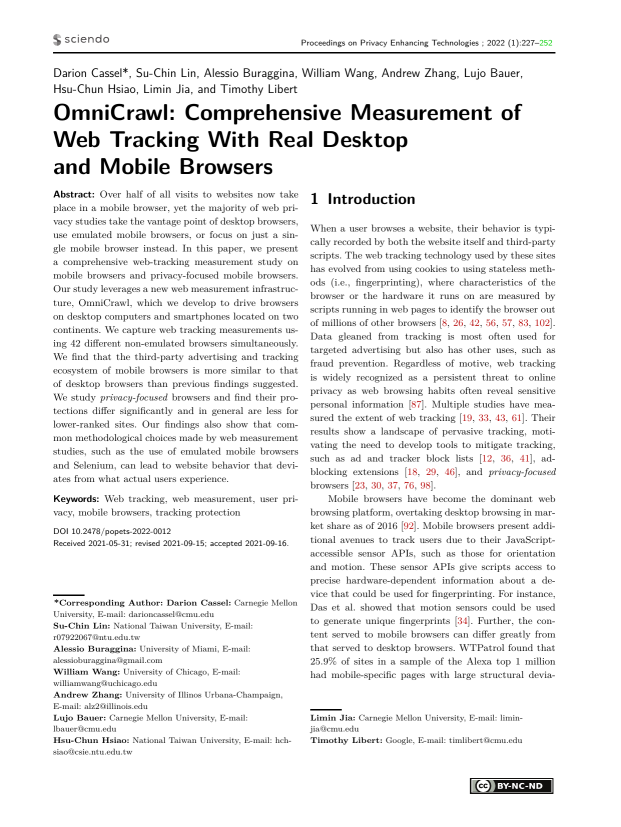OmniCrawl: Comprehensive Measurement of Web Tracking With Real Desktop and Mobile Browsers
Authors: Darion Cassel (Carnegie Mellon University), Su-Chin Lin (National Taiwan University), Alessio Buraggina (University of Miami), William Wang (University of Chicago), Andrew Zhang (University of Illinos Urbana-Champaign), Lujo Bauer (Carnegie Mellon University), Hsu-Chun Hsiao (National Taiwan University), Limin Jia (Carnegie Mellon University), Timothy Libert (Google)
Volume: 2022
Issue: 1
Pages: 227–252
DOI: https://doi.org/10.2478/popets-2022-0012
Abstract: Over half of all visits to websites now take place in a mobile browser, yet the majority of web privacy studies take the vantage point of desktop browsers, use emulated mobile browsers, or focus on just a single mobile browser instead. In this paper, we present a comprehensive web-tracking measurement study on mobile browsers and privacy-focused mobile browsers. Our study leverages a new web measurement infrastructure, OmniCrawl, which we develop to drive browsers on desktop computers and smartphones located on two continents. We capture web tracking measurements using 42 different non-emulated browsers simultaneously. We find that the third-party advertising and tracking ecosystem of mobile browsers is more similar to that of desktop browsers than previous findings suggested. We study privacy-focused browsers and find their protections differ significantly and in general are less for lower-ranked sites. Our findings also show that common methodological choices made by web measurement studies, such as the use of emulated mobile browsers and Selenium, can lead to website behavior that deviates from what actual users experience.
Keywords: Web tracking, web measurement, user privacy, mobile browsers, tracking protection
Copyright in PoPETs articles are held by their authors. This article is published under a Creative Commons Attribution-NonCommercial-NoDerivs 3.0 license.


